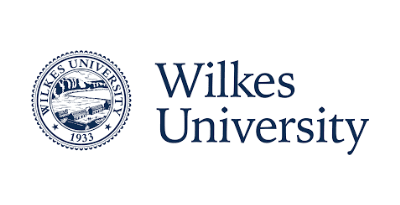BSN-to-DNP programs are designed for nurses who already hold a bachelor of science in nursing (BSN) but haven’t yet earned their master's degree. These programs can save nurses valuable time and money in their nursing education. They’re available in a variety of formats, including online courses, in-person programs and hybrid options. Coursework is designed to help busy, working nurses obtain the knowledge required for them to advance their careers faster while successfully managing non-academic responsibilities.
The Doctor in Nursing Practice (DNP) opens doors to many different career paths in a care delivery setting, including those of nurse practitioner (NP), nurse anesthetist, nurse midwife or another more specialized position like adult-gerontology primary care nurse practitioner, with greater responsibility and higher pay. NPs, for example, earn a median salary of $115,800. Understanding what types of programs are available can help you decide which option is best for your future.
Undertaking a DNP program requires time, resources and energy, but there are many potential benefits. This program allows you to expand into areas of nursing that are most relevant to your interests and career goals. It also allows you to work more closely with your patients as a nurse practitioner, utilizing advanced assessment and diagnostic reasoning to create evidence-based plans of care.
Furthermore, a DNP degree has become increasingly important, with the National Organization of Nurse Practitioner Faculties (NONPF) committing to moving all entry-level NP education to the DNP degree by 2025 and the American Association of Colleges of Nursing (AACN) recommending a DNP degree be required of all those seeking a career in advanced practice nursing. A few more benefits follow.
More career options. Earning a DNP degree allows you to qualify for meaningful work in the areas of leadership and patient care. If you decide to become a nurse practitioner, you can work autonomously with patients to assess, diagnose, and manage ongoing care. Some programs even give you the option of earning an MSN degree at the same time as a DNP, which opens your career prospects further.
Higher salaries. Nurses are deeply dedicated to caring for patients, but when you earn a DNP degree, you can also earn more money. According to PayScale, the median annual salary for a psychiatric nurse practitioner is $108,010, and a family nurse practitioner’s median pay is $95,877. If a higher salary is a driving factor in your career choice, consider learning more about online NP programs and becoming an NP.
Greater flexibility. A DNP will qualify you for more positions, and as a result, you will have more options and greater flexibility in your choices. Decide to work as a nurse practitioner, or decide to go into management. Work more traditional hours, or opt to work in an environment where you can work specific shifts that fit better with your family’s needs.
Ability to teach. Many teaching positions require a doctorate. There is a shortage of educators in the nursing field right now, which contributes to the lack of registered nurses nationwide. With a DNP degree, you have the option of teaching the next generation of registered nurses and having a greater impact on your community.
If you’re considering a DNP program, you might have questions, such as: What coursework is required? How long will the degree take to complete? How much of a program is online, and how much is in person?
DNP coursework typically includes coursework in quality, leadership and evidenced-based practice, post baccalaureate advanced nursing practice hours and a DNP project. Combined, these courses will ensure that you’re provided with a comprehensive curriculum along with practical hands-on experience.
Programs that are 100% online still have in-person clinical hour requirements. These hours are typically a requirement for specialized certification exams and may require you to rearrange your responsibilities in the short term. Most universities have a process that helps make accomplishing these clinical hours easier, such as working to secure the clinical experience location on your behalf. Specialties that require clinical hours include a nurse practitioner, a clinical nurse specialist, a nurse anesthesiologist and a certified nurse midwife.
The amount of time it takes to earn your DNP largely depends on the level of nursing education you possess when entering your BSN-to-DNP program. The program length will also be dependent upon whether you complete solely your doctorate or a master’s degree and doctorate at the same time. The specialty that is selected and the coursework included in that program can also contribute to the overall amount of time it takes to earn your DNP. That being said, you can generally expect to spend around three to four years of full-time study in a BSN-to-DNP program.
Entry into an advanced practice nursing program is competitive, and at a minimum, most programs have the following admission requirements:
- Bachelor’s degree in nursing earned from an accredited program.
- A grade point average of at least 3.0 (on a 4.0 scale).
- An unencumbered RN license without any stipulations.
- RN experience (some programs will require at least a year).
- Graduate Record Examination (GRE) general test. Not all programs require this, so check on each program’s requirements.
DNP programs offer a variety of specialty options. If you enjoy working with families, you might enjoy family practice. If you prefer to focus on women’s health, you might prefer a women’s health specialty. And if you enjoy helping other nurses learn new skills and how to better serve their patients, you might enjoy teaching. Opportunities that are available to DNP degree graduates include:
- Clinical nurse practitioner (NP). If you decide to become an NP, you can specialize in a variety of areas, such as pediatrics or women’s health. Nurse practitioners can prescribe medications across the country, but the level of autonomy in your practice will vary by state. Some NPs work under the supervision of physicians, while others essentially run their own practice.
- Clinical family nurse practitioner (FNP). FNPs are a branch of NPs that treat individuals of all ages. An FNP works in a primary care setting alongside a physician serving patients, and in some states, can even serve as a primary care provider to diagnose, treat and manage a variety of illnesses.
- Nurse educator (NE). Work at colleges, universities or teaching hospitals to educate the next generation of nurses. You might decide to continue practicing nursing while serving part-time in an educator role.
- Clinical nurse specialist (CNS). A CNS specializes in one area of practice, such as adult health or gerontology. You can also specialize in a specific setting, such as an emergency room or critical care.
- Certified nurse midwife (CNM). A CNM manages childbearing women through pregnancy and delivery, working with patients to offer family planning and providing ongoing care in the area of reproductive health. A CNM may also provide prenatal and postpartum care, and care for newborns.
- Certified registered nurse anesthetist (CRNA). A CRNA administers anesthesia to patients during surgical and other procedures and monitors patient outcomes after surgery. They might administer anesthesia to keep patients asleep during surgery, block pain in a specific area during a procedure or provide sedation.







